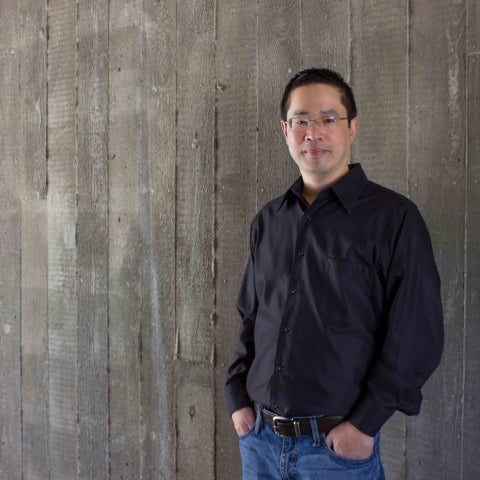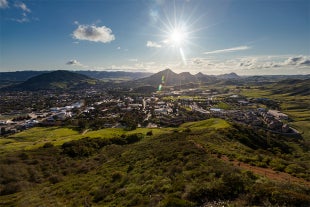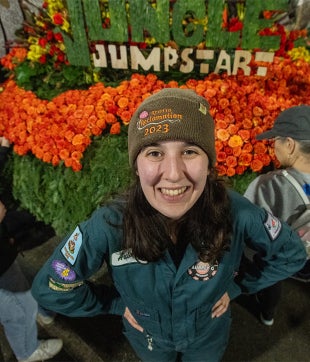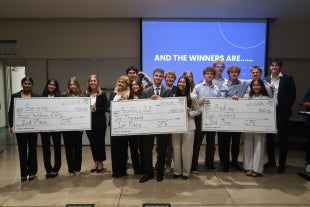Cal Poly Wins First-Ever Grant on Space Cybersecurity from US National Science Foundation
Contact: Patrick Lin
Director, Ethics + Emerging Sciences Group
805-756-2042; palin@calpoly.edu
Patrick LinSAN LUIS OBISPO — Cal Poly’s Ethics + Emerging Sciences Group has been awarded a $300,000 grant from the U.S. National Science Foundation (NSF) to study outer space cybersecurity, both technical and policy dimensions. The two-year project is the first that the NSF has funded on the subject.

With interdisciplinary scholars and prominent expert consultants, the new project will generate novel scenarios for space cyberattacks while identifying and analyzing gaps in space law and norms that might allow for misunderstandings and conflict in the already contested but vital domain of outer space.
According to the project’s principal investigator Patrick Lin, director of the Ethics + Emerging Sciences Group and philosophy professor at Cal Poly, it is now urgent to study space cybersecurity given a perfect storm of factors.
“All of our space laws, such as the 1967 Outer Space Treaty, are just too old and need to be updated for today’s technological realities,” Lin said. “At the same time, space systems are increasingly complex, which means more cyberattack vectors that need to be anticipated for informed policy planning and technical designs.”
The accelerating pace of space activities and the introduction of new tactics and technologies are increasing vulnerabilities and the severity of potential harms. As competition rises between states, cyberoperations are often a preferred method of attack because it is often difficult to identify the perpetrators.
“Policymakers must have a grasp of the many possible ways that space assets could be cyberattacked,” Lin added. “But there are only a few scenarios that anyone usually mentions: hacking a satellite or ground station, spoofing or jamming signals such as GPS, and crashing space debris into satellites. That’s pretty much it. We want to deliver a much more robust set of scenarios, along with policy analysis, to help inform planning discussions worldwide on space security.”
The Cal Poly research team includes faculty researchers from the College of Liberal Arts (technology ethicists Lin, Keith Abney, and Ryan Jenkins) and the College of Engineering (cybersecurity expert Bruce DeBruhl and space-systems expert Pauline Faure). The project is also supported by the Grants Development Office (Susanne Gartner) and Sponsored Programs (Stephany Martin).
The groundbreaking project also extends Cal Poly’s leadership in aerospace, which includes co-inventing CubeSats, organizing one of the first symposiums on space cybersecurity, and producing notable astronauts, such as Victor Glover, and aerospace pioneers, such as Burt Rutan. Its relationship with US Space Command, including nearby Vandenberg Space Force Base, and reputation in technology ethics also make Cal Poly a natural home for the NSF project.
As part of the project, Cal Poly is teaming up with Stanford’s Center for International Security and Cooperation (CISAC) and Hoover Institution to organize an expert meeting on space cybersecurity in late March 2023.
The two-year project is scheduled to end in summer 2024 and will culminate in a public report and other outputs.
About the Ethics + Emerging Sciences Group
Based at Cal Poly, San Luis Obispo, the Ethics + Emerging Sciences Group is a non-partisan organization focused on emerging technology ethics, including risk, legal, policy, and social impacts of new technologies and sciences.
About Cal Poly
Cal Poly is a nationally ranked public university located in San Luis Obispo, California, and known for its Learn by Doing philosophy. Each year about 22,000 top-tier students come to Cal Poly to put knowledge into action, taking their learning outside the classroom as they prepare for careers in areas such as engineering, agriculture, science, business, humanities and the built environment. Cal Poly’s hands-on approach, small class sizes and close student-faculty mentorships result in graduates ready from Day One to impact their communities, California and the world.



